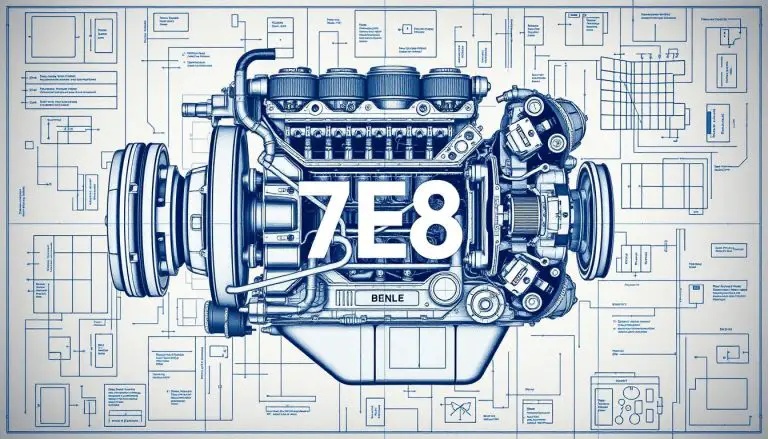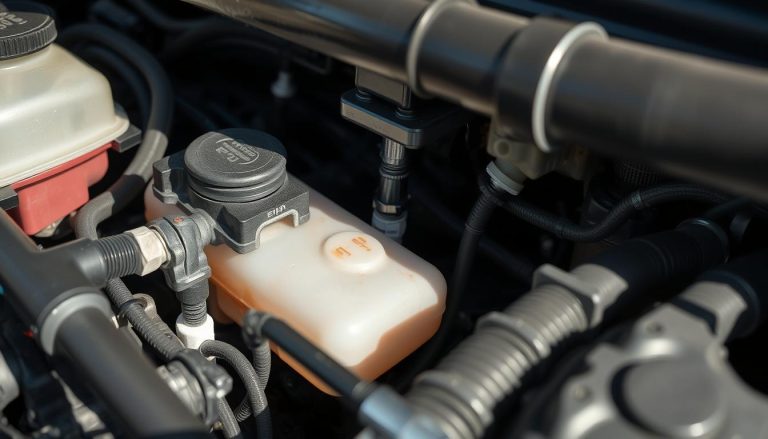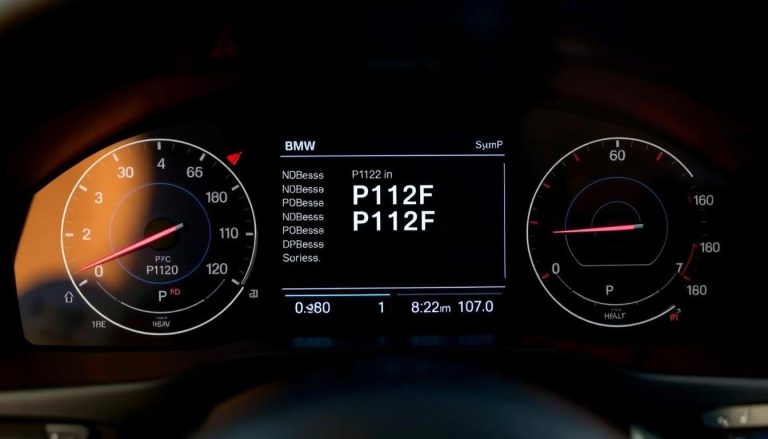If you’ve ever seen the P0047 code pop up on your dashboard, you might feel a mix of confusion and concern. What does it mean? Is it serious? Understanding this specific trouble code is crucial for maintaining your vehicle’s performance and longevity.
In this blog post, we’ll dive deep into everything you need to know about the P0047 code—from its meaning to potential causes, symptoms, diagnostic steps, and repair solutions.
What does the P0047 code mean?
The P0047 code is an OBD-II trouble code related to the turbocharger or supercharger boost control system. It indicates a low voltage signal in the boost control circuit, specifically for Boost Control A.
When your vehicle’s engine control unit (ECU) detects that the voltage from the boost control solenoid is lower than expected, it triggers this code. This could signify issues with wiring, connectors, or even components within the turbocharging system itself.
Turbochargers and superchargers are essential for enhancing engine performance by forcing more air into combustion chambers. When there’s a problem like indicated by P0047, you may experience reduced power output and efficiency.
Understanding what this code signifies helps you take action sooner rather than later. Ignoring it can lead to further complications down the road.
What are the possible causes of a P0047 code?
The P0047 code typically points to issues related to the turbocharger or supercharger boost control circuit. One common cause is a faulty boost pressure sensor, which can misread the actual boost levels.
Wiring problems also play a significant role. Damaged wires or loose connections in the boost control circuit can lead to incorrect signals being sent to the engine control module (ECM).
Another factor could be an issue within the turbocharger or supercharger itself. If these components are malfunctioning, they may not provide adequate boost, triggering this diagnostic trouble code.
Vacuum leaks can further complicate matters by affecting air intake and overall performance. Any disruption in airflow will likely impact how well your vehicle operates under load.
Software glitches in the ECM might contribute to setting off a P0047 code. Keeping your vehicle’s software updated is essential for proper function and diagnosis.
What are the common symptoms of a P0047 code?
When your vehicle throws a P0047 code, you might notice some performance issues. A notable symptom is reduced engine power. This can lead to frustrating acceleration problems.
You may also experience poor fuel economy. The turbocharger or supercharger isn’t working optimally, causing the engine to consume more fuel than necessary.
Another common symptom is unusual noises from the engine bay. Whining or hissing sounds could indicate that the boost control system isn’t functioning correctly.
Check-engine lights are often triggered in conjunction with this code. If your dashboard starts lighting up, it’s time for an inspection.
A rough idle can occur as the vehicle struggles to maintain optimal performance levels. Monitoring these symptoms closely helps in addressing potential issues early on.
What are the diagnostic steps for a P0047 code?
To diagnose a P0047 code, start with a professional OBD-II scanner. This tool will read and confirm the trouble codes stored in your vehicle’s computer.
Next, inspect the turbocharger or supercharger boost control circuit. Look for damaged wiring or loose connections that could lead to signal disruptions.
Then, check the vacuum lines connected to the boost control solenoid. Ensure they are intact and free from cracks or leaks.
Following this, you should test the boost pressure sensor if applicable. A malfunctioning sensor can send incorrect readings to the engine control module (ECM).
Clear any existing codes and take your car for a test drive. Monitor performance closely to see if the P0047 code reappears during normal operation. Observing how often it triggers can help narrow down potential issues further.
How serious Is the P0047 Code? Can I continue driving with the P0047 code?
The P0047 code indicates an issue with the turbocharger or supercharger boost control circuit. This can lead to reduced engine performance and efficiency, which is something to consider.
Driving with this code present may not immediately cause catastrophic damage, but it’s not advisable. You might experience sluggish acceleration, poor fuel economy, or even stalling in severe cases.
Ignoring the warning could escalate minor issues into major repairs down the line. It’s essential to monitor your vehicle’s behavior closely if you encounter this error code.
If you notice any unusual sounds or changes in how your car performs, it’s wise to consult a professional mechanic promptly. Taking proactive measures can save you time and money in the future.
What are the repair solutions for a P0047 – Turbocharger/Supercharger Boost Control A Circuit Low ?
Repairing a P0047 code often starts with addressing the underlying issues in the turbocharger or supercharger system. One common fix involves inspecting and replacing faulty sensors, particularly the boost pressure sensor. These components play a vital role in regulating boost levels.
Wiring problems can also trigger this code. A thorough examination of electrical connections is essential. Look for damaged wires, loose connectors, or corrosion that could disrupt proper function.
In some cases, software updates to the engine control module (ECM) may resolve communication errors within the circuit. This step ensures that all systems are synced correctly.
If these solutions don’t work, more extensive repairs might be necessary. Replacing malfunctioning solenoids or even considering a turbocharger/supercharger rebuild can restore performance and eliminate error codes effectively. Always ensure you’re using quality parts to avoid future issues.
How long and How much does it cost to diagnose and repair a P0047 code?
The cost and time required to diagnose and repair a P0047 code can vary significantly. Typically, diagnosing this issue at a reputable shop can range from $100 to $150. This fee often covers labor for scanning the vehicle and performing initial checks.
Once diagnosed, repairs are where costs may rise sharply based on the underlying cause. If it’s something minor like a loose connector or damaged wiring, you might spend around $50 to $200 for parts and labor.
However, if it involves replacing the turbocharger or supercharger itself, expenses could escalate into hundreds or even thousands of dollars. Additionally, expect some shops to take anywhere from one hour up to several hours for diagnosis alone depending on workload and complexity.
Always consult with multiple mechanics for estimates before committing to any repairs. It helps ensure you’re getting fair pricing tailored specifically to your situation.
How can I avoid a P0047 code?
Regular maintenance is key in preventing the P0047 code. Keep up with your vehicle’s scheduled service intervals. This includes oil changes, air filter replacements, and checking fluid levels.
Pay attention to any signs of wear and tear on your turbocharger or supercharger system. Inspect hoses and connections for leaks or damage regularly. Address issues promptly before they escalate into more serious problems.
Using high-quality fuel can also make a significant difference. It helps maintain optimal engine performance, which in turn supports the boost control system effectively.
Investing in a professional diagnostic tool can aid in early detection of potential faults. Catching small issues before they trigger error codes will save you time and money down the line.
Educate yourself about your specific vehicle model’s common problems regarding its turbocharging or supercharging systems to stay ahead of possible failures.
What happens if you ignore a P0047 code?
Ignoring a P0047 code can lead to more serious engine issues over time. The turbocharger or supercharger plays a crucial role in boosting your vehicle’s performance. When something goes wrong, like the boost control circuit being low, it can affect overall efficiency.
If left unchecked, you might experience reduced power output and poor acceleration. This could make driving frustrating and less enjoyable.
Additionally, other related components may suffer from stress. What starts as one trouble code can snowball into multiple problems if not addressed promptly.
Fuel economy may also take a hit. You’ll likely notice increased consumption at the pump without noticeable gains in performance.
Long-term neglect of this issue could result in costly repairs down the line. It is wise to tackle warning codes sooner rather than later for peace of mind and better vehicle health.
Is the P0047 code specific to certain car makes or models?
The P0047 code is not limited to specific car makes or models. It’s a generic trouble code that can trigger in various vehicles equipped with turbochargers or superchargers.
While manufacturers may have unique systems and configurations, the underlying issue typically relates to boost control circuits. This means you might encounter the P0047 code across a wide range of brands, including domestic and foreign vehicles.
However, certain models known for their forced induction setups may experience this error more frequently. Performance-oriented cars often push these components to their limits, increasing the likelihood of issues arising.
Always refer to your vehicle’s service manual for model-specific insights. Each manufacturer has its own diagnostic approach, which can impact how this code presents itself in different vehicles. Understanding your car’s nuances is key to effective troubleshooting.
What other codes may be related to P0047?
When dealing with the P0047 code, it’s essential to be aware of other diagnostic trouble codes (DTCs) that may arise alongside it. These related codes can provide further insight into underlying issues affecting your vehicle’s turbocharger or supercharger system.
For instance, you might encounter the P003A code, which indicates a performance problem related to the turbocharger boost control. Other common codes include P0299 and P0234, both signaling potential underboost conditions or overboost situations respectively. Additionally, the P0245 code relates specifically to an issue with the wastegate actuator circuit.
These associated DTCs highlight how interconnected modern engine systems are; a single malfunction can lead to multiple errors being logged in your vehicle’s computer. Understanding these relationships helps pinpoint root causes more effectively during diagnostics and repair processes.
Addressing any of these related codes promptly is crucial for maintaining optimal engine performance and preventing further complications down the line. By staying informed about potential issues linked to the P0047 code, you’ll be better equipped to keep your vehicle running smoothly while avoiding costly repairs in the future.


